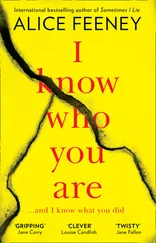There was nothing remarkable about Rosie O’Grady’s: it was a generic Irish pub, with signs for Guinness and wooden stools lining the bar. But as a foreign-owned bar in the city, it was to Moscow’s expats what Rick’s was to the denizens of Casablanca. Corinne seemed to know everyone: the Newsweek bureau chief who was complaining about his wife back in New York; the NPR reporter who kept twisting the resin bracelets on her arm as she spoke in a husky, smoke-filled voice; the economist from India who preached privatization; the Texan oil worker who bought me a beer and called me—without a trace of irony—“little lady.” After a week spent struggling to piece together the conversations I’d heard in Russian, it was a surreal relief to be surrounded by voices speaking English. They were French, Swedish, Italian, British, Canadian, Australian, Indian, German, American, and Irish—the bartender took our orders with a brogue—and though they spoke with varying degrees of proficiency, it was English they conversed in. They traded stories of entanglement with Soviet-style bureaucracy. They bemoaned the lack of customer service. They diagnosed the ailing Russian economy and shook their heads about oligarchs. They told jokes about New Russians. (New Russian #1: Nice tie. New Russian #2: It cost three hundred dollars. New Russian #1: You fool! You could’ve gotten it for five hundred around the corner.) And they were full of advice for me, the rookie in their midst. Don’t use credit cards, they said. Even at the fancy restaurants. They’ll steal your card number and charge up a storm... Beware of the Gypsy kids, they said. They’ll descend on you around the Metro stations. They might look cute, but they’ll pick your pockets clean. ... Beware when someone shouts “Militsiya!” or “Police!”—it’s just a tactic to divert your attention while someone else steals your money... Be careful of making agreements with Russians, they said. Everyone lies, they said... Russians are so xenophobic, they said. And racist... Flowers, they said. Russians love flowers. Men and women. Give them flowers on their birthdays or when you visit their homes. But make sure you never give a bouquet with an even number of flowers. It’s bad luck. Eleven flowers, thirteen flowers, but never a dozen. I was learning a great deal about Russian superstition. If you put a lot of salt in your cooking, it means you are in love, Svetlana had told me earlier. If you brush crumbs off the table into your hand, you will fight with your lover. And she said, Don’t ever sit at the corner of a table during a meal, or you will never be married. I said it was too late: I’d spent many years in corners.
“So what brought you to Moscow?” the expats asked. They offered their own history as pioneers: every story an epic with an adventurous hero. Their expat avatars were less timid, less awkward than the identities they inhabited at home.
“I don’t know,” I said, which has always been my answer when I don’t feel like elaborating.
“She wants to be a journalist,” said Corinne. She was on her third vodka tonic and getting louder and more strident.
They were all getting louder, actually. I hadn’t been around so many drunk people since college. Their drinking was reckless and a little frightening, as each glass erased more of the evening’s composition. Is this adulthood? I thought . I graduated to this ? There were plenty of journalists there, from the New York Times, the Washington Pos t , CNN. They burped booze as they passed me their business cards and urged me to get in touch. Someone from the Moscow Times assured me he could get me a job as a copy editor. “You’re obviously a smart girl,” he said.
And then Corinne said, “We’re going dancing,” and I found myself carried by the flow back out into the street. There were two women with us—the husky-voiced NPR reporter and an Australian named Molly, who bent over to vomit right there on the sidewalk while Corinne hailed a car. “Propaganda!” Corinne said triumphantly from the front seat as the rest of us squeezed into the back. “Propaganda!” Molly said, with a hiccup. I cracked a window to get some air and hoped that Molly wouldn’t throw up on me, and then I closed my eyes against the driver’s dangerous maneuvers. It was only when the car slammed to a stop that I realized that “Propaganda” was our destination.
Propaganda was a nightclub, and it was dollars that Corinne and the NPR reporter shoved at the bouncer to buy our admission. Inside, techno music throbbed in the semidarkness, and both Russians and foreigners tangled on the dance floor. It was easy to spot the Russian women under the lights: they were much skinnier than the Westerners, and their skin—from years of poor nutrition, perhaps—was sallow. We took a table in the corner—“Not too close to the deejay!” said Corinne—and a petulant waitress took our order. When the shots arrived, I shook my head, but Corinne would not accept my refusal. “You’re in Moscow,” she said. “You have to drink vodka.”
Three shots later I was dancing with the others. Corinne jerked around like a marionette. Molly wobbled back and forth like an inflatable toy. The woman from NPR, who finally told me her name was Leslie, closed her eyes in a sort of trance. Some of the people I’d met at Rosie O’Grady’s arrived. Most of the men were grinding with bony Russian women—including the married man from the Newsweek bureau, I noticed—but I stayed close to Corinne and her friends, who agreed they wouldn’t sleep with a Russian man for all the money in the world.
“Chauvinist pigs,” said Molly, shiny with sweat.
“There must be exceptions,” I said. The cocktail of smoke and disco lights was making me dizzy.
“I don’t think so,” said Corinne, her breath heavy in my ear. “The women are doing all the work in this country. The men are just getting drunk.”
“The women here are strategic,” said Molly. “Some of them get pregnant on purpose to make their American or European boyfriends marry them.”
A Swedish banker split his pants trying to replicate an Italian’s dance moves, and that’s when Corinne decided it was time for us to go. We stumbled out into the cold.
“Let’s walk for a bit to sober up,” said Corinne.
The air was bracing. I wished I’d worn a hat. I trailed her along a quiet street, and then we were on Tverskaya and Corinne was marching down the steps to cross the street in one of the underground passageways . All the big Moscow avenues have crosswalks below the street, like the tunnels that connect New York subway stations, so that cars don’t have to stop for pedestrians. I’d been in this very perekhod during the day, when human traffic shuffled through. But now it was four o’clock in the morning and empty except for prostitutes—I counted eleven of them—lined up against the wall like criminals waiting to be identified. Corinne and I stopped in our tracks. An oafish man stood in front of the girls, rocking back and forth on his feet, trying to choose. The girls were young—as young as fourteen, I’d say—and the one he selected reminded me of a rabbit: she had large, frightened eyes, and she stepped forward and then froze, twitching. I averted my own eyes. When I looked up, I could see the backs of her stockinged legs—a black seam slicing down each of her calves—as she disappeared up the stairs with the oaf. The lineup dissolved into the shadows. The other girls clustered in groups of three or four, passing around lighters as they fired up their smokes.
“That was horrible,” I said when we were safely up the stairs on the other side of the street.
Читать дальше












